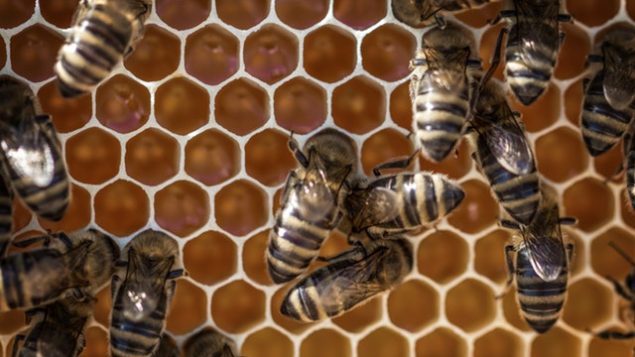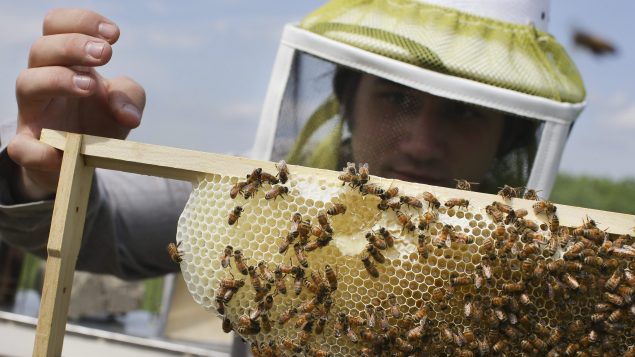The European Union has banned all outdoor uses of neonicotinoid pesticides to protect bees, and Canada should do the same, argue several Canadian environmental groups. Scientific studies have long linked the use of these chemicals to the decline of honeybees, wild bees and other insects that pollinate plants including our food crops.
Meanwhile, Canada has proposed to phase out one in the class of neonicotinoids, imidacloprid, but not until 2021 at the earliest. Two others in the class are subject to only minor restrictions.

Bees pollinate flowers and plants that people depend on for food.
‘Protect pollinators and biodiversity,’ urge groups
Neonicotinoids are the most widely-used class of insecticides in Canada and the world “which has led to ubiquitous environmental contamination,” says a group news release. It calls on the government of Canada to “follow the EU’s lead with comprehensive and swift action on all neonics to protect pollinators and biodiversity.”
The joint release is signed by the Canadian Association of Physicians for the Environment, Canadian Environmental Law Association, David Suzuki Foundation, Equiterre and Environmental Defence.

Honey samples from around the world have been found to be contaminated with neonicotinoids.







For reasons beyond our control, and for an undetermined period of time, our comment section is now closed. However, our social networks remain open to your contributions.